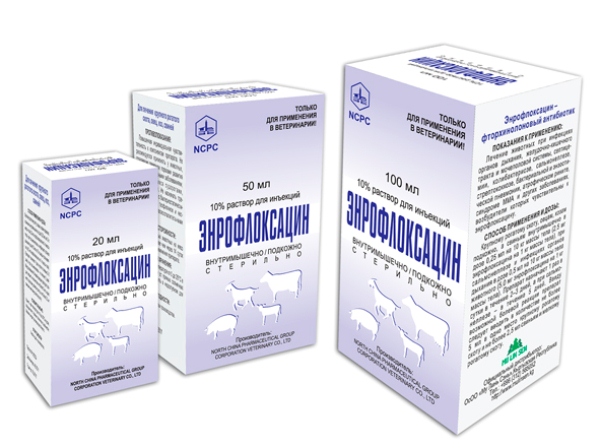The modern specificity of growing chickens may vary depending on the goals pursued. It can be business or personal content for personal use. In spite of this, any chicks may be affectedthat can cause damage to your household.
In this article you can get acquainted with detailed instructions for use of antibacterial and anti-infective drug for birds - enrofloxacin.
Table of contents
For which diseases enrofloxacin is used
Enrofloxacin - a broad-acting drug, which is used in the treatment of bacterial and mycoplasmal diseases of poultry and pigs. The tool can significantly inhibit the development and reproduction of coccoid bacteria.
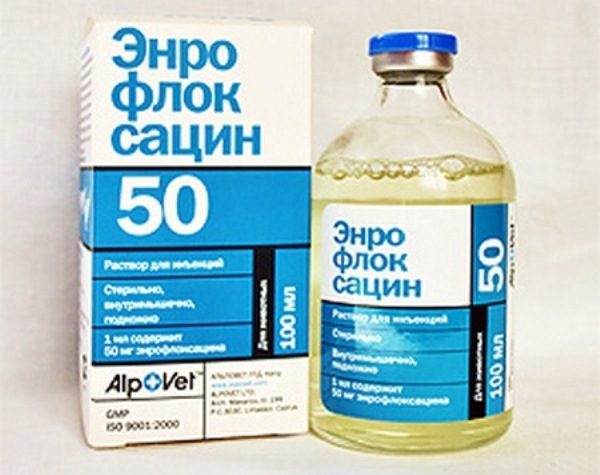
The action of the drug is aimed at maximum cure chicks and effectively used in the following diseases:
- Mycoplasmosis;
- Colibacteriosis;
- Pasteurellosis;
- Hemophilia;
- Infectious rhinitis;
- Necrotic enteritis;
- Salmonellosis;
- Campylobacteriosis hepatitis;
- Streptococcosis;
- Infections mixed and secondary type.
How to apply to chicks: chickens, broilers and other
Enrofloxacin is administered exclusively by the oral route., that is, inside through the oral cavity of chicks. This drug begins to act after a few hours from the moment the bird enters the gastrointestinal tract. The use of enrofloxacin is to dilute it in water in certain proportions. Further the solution is poured into the drinker and put to the birds instead of ordinary water for round-the-clock drinking.The treatment lasts five to six days.
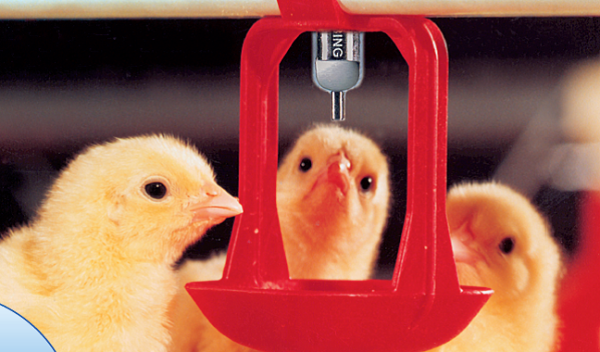
The solution must be prepared every day based on an approximate calculation of daily consumption. bird of water. During the entire period of treatment, the bird must be given only water with the addition of a drug.
- for chickens - 5 ml per 10 l of water;
- for broiler chickens - 50 ml per 100 l of water;
- for goslings - 50 ml per 100 l of water;
- for turkey poults - 50 ml per 100 l of water;
- for other birds - 50 ml per 100 l of water.
In this case, it is necessary to provide constant care and monitoring of sick animals in order to avoid the threat of death.
Instructions for use for adult birds
Adults are not prescribed., because it lacks elements that can treat adult animals.
Side effects
Drug the drug is prohibited to animals in the presence of severe hepatic and renal diseases. Enrofloxacin is not allowed for ruminant cattle that have developed cicatricial digestion, as well as individual intolerance to fluoroquinolones.
It is not advisable to use this tool for laying hens because of the possible accumulation of enrofloxacin in eggs.
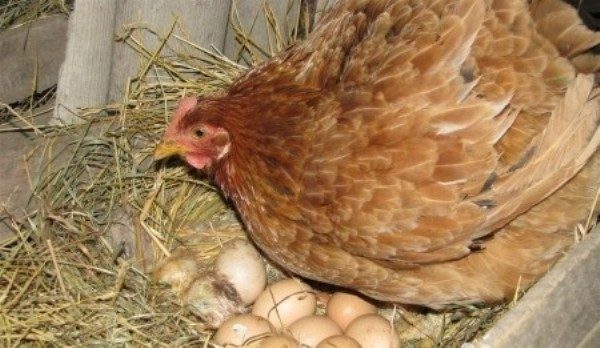
During the course of therapy it is necessary to limit the long stay of animals in direct sunlight. An overdose of an oral solution of enrofloxacin can provoke the appearance of signs of dysbacteriosis and disturbance of the microflora of the gastrointestinal tract. In such cases, it is necessary to suspend treatment with this drug and take measures to eliminate the symptoms that have appeared.
Accurate and strict observance of the indicated dosages of the use of the drug, which contains enrofloxacin, will allow to avoid contraindications and side effects. However, today many experts in the field of veterinary and poultry farms exceed the recommended dose of the drug in two or three times. They explain this by increasing the resistance of viruses to antibiotics. Studies aimed at determining the exact dosages of the drug are still being conducted, but there are already opinions that such measures may provoke inhibited development and a lag in the growth of the body of the bird.
Avoid side effects this drug must be used two hours before or four hours after the application of the above described means.
Contraindications
Drug use prohibited in the following cases:
- Hypersensitivity animals to substances containing fluoroquinolone;
- Developed cicatricial digestion in ruminants;
- Breeding laying hens for egg productiondue to the undesirability of people eating eggs in which enrofloxacin is present.
Pharmacological properties

Enrofloxacin has the following pharmacological properties:
- Enrofloxacin-containing preparations belong to the community of fluoroquinolones and have a powerful antibacterial effect.
- Actively acts against gram-positive and gram-negative parasites and mycoplasma.
- Able to inhibit the formation of malic acid microorganismsthat threatens to damage the integrity of the DNA by blocking the DNA gyrase.
- It has active process of absorption from the digestive tract of a bird and effective penetration into internal organs and tissues.
- The most concentrated effect of the drug is observed after two hours from the moment of administration and operates for six hours.
- Able to partially metabolize into a substance called ciprofloxacin, which is excreted in the form of bile or feces.
- A drug considered moderately dangerous substance on the quality of influence on the animal organism.
After reviewing all the pharmacological properties and side effects of enrofloxacin, we found that the drug is a synthetic antimicrobial agentcontaining fluoroquinolones. Used for therapeutic and prophylactic purposes against infectious diseases and to stimulate growth. It is also effectively used in the treatment of such serious infections as pneumonia, typhoid, cystic fibrosis, etc.
Used in a convenient and simple way. - dilution of the drug in drinking water.
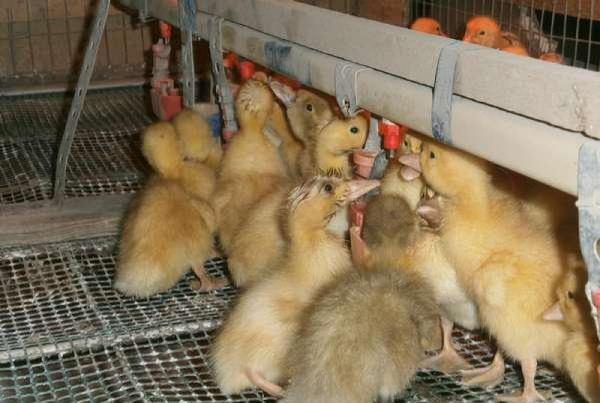
It should be noted that in European countries there is a ban on the use of such antimicrobial agents. The reason for such a ban is considered to be the emergence of resistance of microorganisms, that is, organisms that can cause human diseases. However, it should be noted that the threat of the emergence of resistance occurs when incorrect use of fluoroquinolones, that is, not following the recommendations of the instructions. A sign of such a process is considered to be an overabundance of the permissible level of substances in poultry products.
